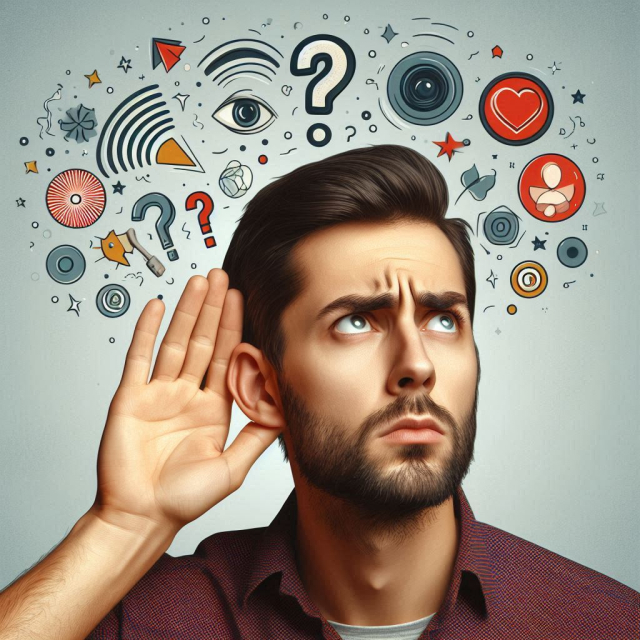Hearing is one of the most important senses of the human being, since it allows us to communicate, enjoy music, perceive the environment and maintain balance. However, it is a sense that is often taken for granted until it begins to fail. Protecting your hearing is essential to maintaining a good quality of life. This article offers a complete guide on how to care for your ear and protect your hearing.
Importance of Hearing.
Hearing plays a vital role in several aspects of our daily lives:
- Communication: It allows us to understand and be understood, which is essential for personal and professional relationships.
- Safety: Helps us perceive warning signs, such as car horns or alarms.
- Entertainment: It allows us to enjoy music, movies and other media.
- Balance: The inner ear is crucial for maintaining balance and spatial orientation.
Factors That Can Affect Hearing.
There are several factors that can affect hearing, including:
- Excessive noise: Exposure to loud, constant noise can damage the hair cells in the inner ear, leading to hearing loss.
- Infections: Ear infections, such as otitis media, can cause temporary or permanent damage.
- Aging: Presbycusis is the gradual loss of hearing due to aging.
- Genetics: Some people have a genetic predisposition to hearing loss.
- Medications: Some ototoxic drugs can damage the inner ear.
- Trauma: Head or ear injuries can affect hearing.
Steps to Take Care of Your Hearing.
Avoid Exposure to Loud Noises.
Exposure to loud noises is one of the main causes of hearing loss. Here are some ways to protect yourself:
- Using hearing protection: If you work in noisy environments, such as construction or industry, wear hearing protectors such as earplugs or protective headphones.
- Reduce the volume: Keep the volume of personal audio devices, such as phones and music players, at safe levels. The 60/60 rule is helpful: don't listen at more than 60% of maximum volume for more than 60 minutes a day.
- Take listening breaks: If you find yourself in a noisy environment, take frequent breaks to give your ears a break.
- Avoid noisy environments: Whenever possible, try to avoid extremely noisy places, such as concerts, nightclubs, and sporting events without adequate hearing protection.
Maintain Adequate Hearing Hygiene.
Ear hygiene is crucial to prevent infections and other hearing problems:
- Correct cleaning: Avoid putting objects in your ears, such as cotton swabs, which can push the wax inside and cause blockages or damage. Clean only the outer part of the ear with a soft towel.
- Treat excessive wax: If you have problems with wax buildup, consult a health professional. They may recommend drops to soften the wax or perform professional cleaning.
- Dry your ears well: After swimming or bathing, dry your ears well to prevent infections. You can tilt your head to make it easier to drain the water and use a soft towel to dry the outside.
Protect Ears from Infections.
Ear infections can lead to serious hearing problems if not treated properly:
- Get vaccinated: Keep up to date with recommended vaccines, such as the pneumococcus and flu vaccines, which can prevent infections that affect the ear.
- Treat colds and allergies: Colds and allergies can cause congestion and increase the risk of ear infections. Treat these conditions appropriately to prevent complications.
- Avoid excess moisture: Moisture in the ear canal can promote bacterial growth. Use earplugs when swimming and dry your ears well afterward.
Carry out Periodic Hearing Checks.
Regular hearing checks are essential to detect problems in their early stages:
- Regular exams: If you work in a noisy environment or have a family history of hearing problems, have regular hearing exams with an audiologist.
- Childhood evaluations: Children should undergo hearing evaluations from an early age to detect any problems and treat them promptly.
- Hearing monitoring: If you notice any changes in your hearing, such as difficulty hearing conversations or persistent noises (tinnitus), consult a health professional.
Protect Ears from Trauma.
Head and ear injuries can cause permanent damage:
- Use of helmets and protectors: Wear helmets when playing contact sports, riding a bicycle or motorcycle, or working in environments with risk of head injuries.
- Avoid using sharp objects: Never insert sharp objects into your ears, as they can pierce the eardrum or damage the internal structures of the ear.
Take care of General Health.
General health also affects hearing health:
- Healthy eating: A balanced diet rich in vitamins and minerals, such as magnesium and vitamins A, C and E, can contribute to hearing health.
- Regular exercise: Exercise improves blood circulation, which can help maintain the health of the hair cells in the inner ear.
- Don't smoke: Smoking can damage hearing by affecting blood flow to the inner ear.
- Control chronic diseases: Diseases such as diabetes and hypertension can affect hearing. Keep these conditions under control with the help of a health professional.
Taking care of your hearing is essential to maintaining a good quality of life. Exposure to loud noises, lack of proper hygiene and infections are some of the main threats to hearing health. Adopting healthy habits, wearing hearing protection in noisy environments, maintaining proper hygiene, and performing regular hearing checks are key measures to protect your hearing. Remember that prevention is always the best strategy to keep your hearing in optimal condition and enjoy all the sounds that life has to offer.






